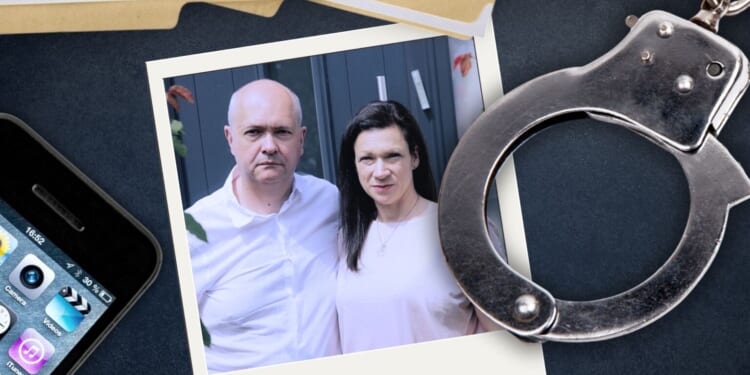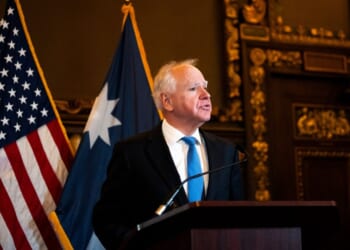Britain’s WhatsApping parents can sleep a little easier in their beds. Remember the Borehamwood couple, Maxie Allen and Rosalind Levine, arrested in January after they had complained about their daughter’s primary school on a parents’ WhatsApp group? Well, Hertfordshire Constabulary have now conceded that the arrest, at the hands of six of their officers, was unlawful. Better late than never, I suppose.
I’ve got to know Maxie and Rosalind a bit recently. Their story forms one of the shocking case studies in our new documentary, Think Before You Post – about the national embarrassment that is British police officers routinely arresting and harassing law-abiding members of the public for posting supposedly ‘offensive’ things online. As Maxie puts it in the doc, about his experience of being carted away in a police car for ‘malicious communications’, ‘to describe it as Kafkaesque is a massive understatement’.
They were arrested. Rosalind had to beg the officers not to handcuff her in front of their three-year-old. Their devices were seized. They were held in a cell for eight hours. They waited five long weeks before Hertfordshire plod told them there would be no further action. All because they were engaged in a protracted, largely online row with the local Cowley Hill Primary School, over its appointment of a new headteacher.
This fits a disturbing pattern, whereby police have become the rent-a-goons of the thin-skinned and easily offended – be that an activist with an axe to grind or a school that doesn’t want to deal with pesky parents’ criticisms. Hertfordshire Constabulary say they stand by their decision to investigate, while conceding the criteria for arrest were not made out – thus ‘rendering the arrest unlawful’. They’ve agreed to a £20,000 payout. But it is, if you’ll excuse the legal jargon, absolutely crackers that this was ever a police matter to begin with.
Cowley Hill told spiked it only ‘sought advice from the police following a high volume of direct correspondence and public social-media posts from two parents, as this was becoming upsetting for staff, parents and governors’. But when we asked the school to produce any examples of these apparently terrifying, potentially criminal missives, they declined. The spiciest messages Maxie and Rosalind can recall is Rosalind calling the acting head a ‘control freak’, which, if anything, seems mild given what happened next.
Maxie and Rosalind’s case sparked national – even international – attention. The Free Speech Union valiantly fought their corner. But as the couple say in the documentary, just think about all the cases we don’t hear about. They were arrested on suspicion of sending ‘malicious communications’ (as well as harassment and causing a nuisance on school property). At least 30 people a day are now arrested for this, according to a recent Times investigation. That’s 12,000 a year. On these numbers alone, Britain is comfortably arresting more people for speech crime today than America did during the First Red Scare.

















